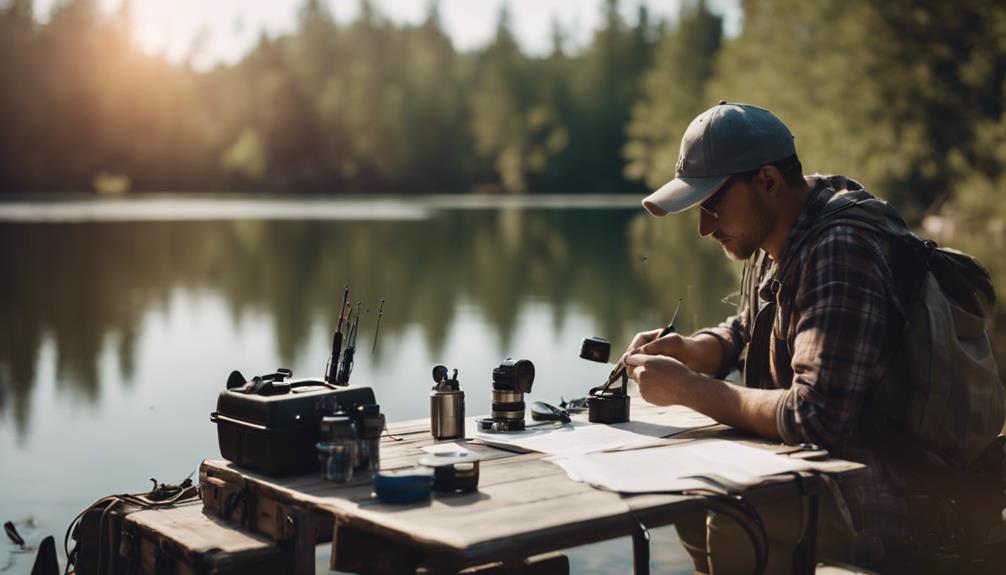Fishing is one of the most beloved pastimes for millions around the world. Whether it’s a quiet day on the lake or an exciting deep-sea adventure, the thrill of reeling in a catch is unmatched. However, before you grab your rod and tackle box, it’s crucial to understand why fishing licenses are required. In this blog post, we will delve into the reasons behind fishing license regulations, the benefits they offer, and how they contribute to sustainable fishing practices.
The Purpose of Fishing Licenses
Fishing licenses serve a critical purpose in the management of fish populations and aquatic ecosystems. By requiring anglers to obtain a license, state and federal agencies can monitor fishing activities and gather valuable data on fish stocks. This information is essential for developing sustainable fishing policies and ensuring that fish populations remain healthy. Without fishing licenses, it would be nearly impossible to track how many people are fishing, what species are being targeted, and how much fish is being harvested. This data is crucial for maintaining a balance in aquatic ecosystems and preventing overfishing.
Promoting Conservation and Sustainability
One of the primary reasons fishing licenses are required is to promote conservation and sustainability. Many fish species are under threat due to overfishing, habitat destruction, and climate change. Fishing licenses often come with regulations, such as catch limits, size restrictions, and seasonal closures, designed to protect vulnerable species and their habitats. By adhering to these regulations, anglers contribute to the longevity of fish populations and the health of aquatic ecosystems. Furthermore, the revenue generated from fishing licenses often goes directly toward conservation efforts, habitat restoration, and fish stocking programs, making it a vital component of environmental stewardship.
Ensuring Public Safety and Compliance
Fishing licenses are not only about fish populations; they also play a role in ensuring public safety and compliance with fishing regulations. When anglers are required to obtain a license, it often includes educational components about local laws, safety protocols, and responsible fishing practices. This education helps to prevent accidents, discourage illegal fishing practices, and promote a culture of respect for the environment and fellow anglers. Additionally, licensing authorities can take action against those who violate fishing regulations, ensuring that everyone is playing by the same rules and maintaining a safe environment for all.
Supporting Local Economies
Fishing is more than just a hobby; it’s also a significant contributor to local economies. The sale of fishing licenses generates revenue that is often reinvested into local communities. This funding supports not only conservation efforts but also infrastructure related to fishing, such as public boat ramps, fishing piers, and educational programs. Moreover, fishing licenses help to regulate the number of anglers in a given area, preventing overcrowding and ensuring that everyone has a fair chance to enjoy the sport. By purchasing a fishing license, anglers are directly supporting their local economies and contributing to the maintenance and improvement of fishing resources.
Understanding the Types of Fishing Licenses
Different types of fishing licenses exist to cater to various fishing activities and demographic groups. For instance, there are freshwater and saltwater licenses, as well as specialized licenses for specific species such as trout or salmon. Additionally, some states offer reduced fees for seniors, veterans, and disabled individuals to encourage participation in fishing. Understanding these different types of licenses is essential for all anglers to ensure they are compliant with local regulations. Moreover, some regions may require a special permit for fishing in certain areas or for specific types of fishing, such as fly-fishing or ice fishing.
How to Obtain a Fishing License
Obtaining a fishing license is typically a straightforward process. Most states offer online applications, making it easy for anglers to secure their license from the comfort of their homes. In addition to online options, licenses can often be purchased at local sporting goods stores, bait shops, or government offices. When applying for a fishing license, you may need to provide proof of residency, identification, and, in some cases, proof of completed fishing education courses. It’s essential to familiarize yourself with your local regulations and requirements to ensure a smooth application process.
The Consequences of Fishing Without a License
Fishing without a license can have serious consequences. Most states impose hefty fines for illegal fishing, which can range from hundreds to thousands of dollars, depending on the severity of the violation. In addition to financial penalties, anglers caught fishing without a license may have their equipment confiscated and could face restrictions on future fishing activities. More importantly, fishing without a license undermines conservation efforts and contributes to negative impacts on fish populations and ecosystems. By fishing legally, you help protect the sport and ensure its availability for future generations.
Conclusion: Embrace Responsible Fishing Practices
In summary, fishing licenses are an essential part of responsible fishing practices. They play a vital role in the conservation of aquatic ecosystems, support local economies, and promote safety and compliance among anglers. By understanding the importance of fishing licenses and adhering to local regulations, you not only contribute to the sustainability of fish populations but also enhance your own fishing experience. So, the next time you plan a fishing trip, remember to obtain your fishing license and embrace the values of responsible angling. Your commitment to sustainable practices will ensure that future generations can enjoy the joy of fishing just as you do today.
